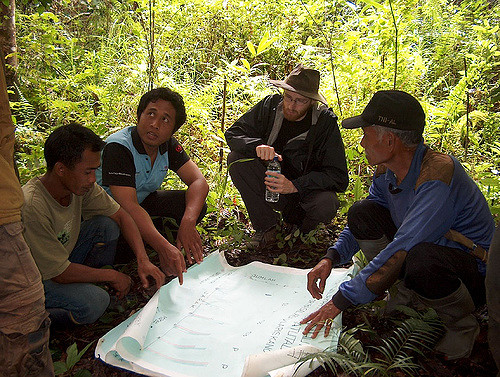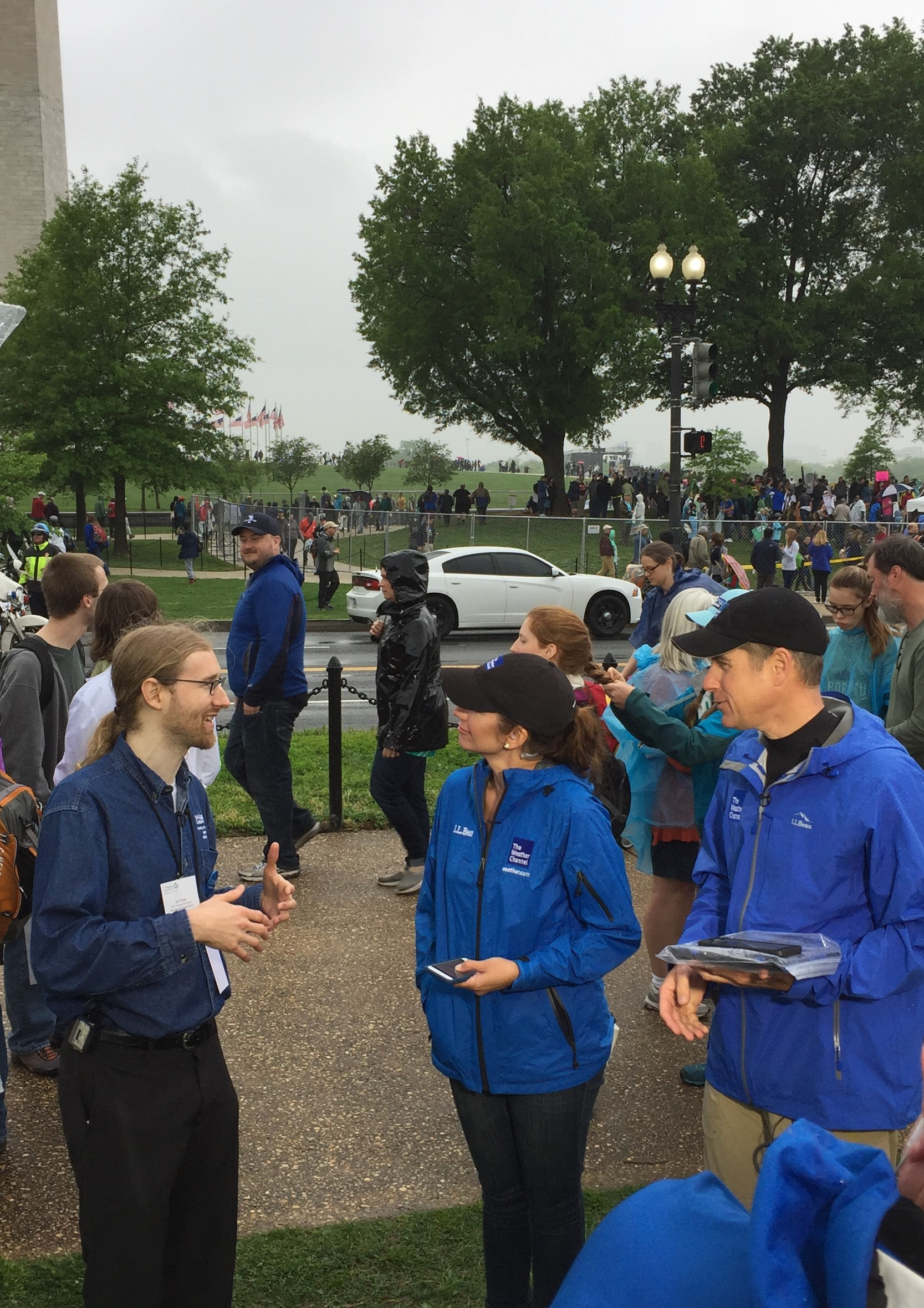Communicating your message is crucial and it takes lots of practice

Rejection and imposter syndrome are common experiences in the science area. Whether we have an advanced degree or are on a less traditional path, the scientific standard [of credibility] is a high bar to reach. Yet, we must reach it and knowing how to communicate your findings is key to helping conservation managers move forward. Jon Fisher, M.S., is a Science Officer with The Pew Charitable Trusts and it took him a little while to find his voice and become and expert at communicating his message. He has authored or co-authored over 15 journal papers ranging from topics on remote sensing and soils to knowledge diffusion in conservation organizations and shares his publishing experiences with us and the importance of knowing your message and getting it out there.
Carolyn Rosevelt (CR): How did you hear about WildHub and why did you join?
Jon Fisher (JF): I belong to the Conservation Coaches Network (CCNet) (https://www.ccnetglobal.com), a global network of trained conservation coaches helping others apply the principals and practices of the Conservation Standards (https://conservationstandards.org) within diverse projects. I learned about WildHub through CCNet and like to pass along job postings and trainings; I most recently shared information on a freshwater ecology course.
CR: As scientists we are taught that publishing is the currency of doing research. Do you agree with the publish or perish mindset?
JF: For academia, I totally agree with the unspoken rule or expectation of publish or perish. Within applied conservation I feel it is less true, yet there is a price of entry to be seen as an expert. While having a PhD is still the high standard, publishing your research also gives you currency and likely will improve your chances of getting a new job and being trusted as an expert. But it’s not the only way; reading lots of science and being able to clearly convey the results to non-scientists is also key.
Lessons Learned: Spend less time getting papers into a prestigious journal and more time on communicating the results and impacts to your target audiences.
CR: What lead you to write your most recent paper? "Improving scientific impact: How to practice science that influences environmental policy and management" (https://doi.org/10.1111/csp2.210)
JF: Earlier in my career I began to realize that my research had no or little impact. Because of this nagging feeling I started to engage in applied research efforts and soon was discussing ways to improve the impact of conservation science with my colleagues. At some point someone asked me “What do you want people to do after reading my paper?” I paused to think about it and I realized most journal articles weren’t written to make a clear and compelling case of how to use them. I wanted to help scientists do research that gets used!
Lessons learned: Always ask yourself: What do you want people to do after reading my paper?

Image 1. Jon discussing project plans with stakeholders in Sulawesi Indonesia. Photo credit: Jon Fisher
CR: What challenges did you face during writing or publishing this paper?
JF: Developing and writing this paper took 3 years. My co-authors and I hoped to help others design research with the goal of environmental impact. Two main challenges persisted and appeared now and again. We asked for input from many colleagues, and I was surprised at how diverse the opinions were on what we should do and say in our paper. My team would check in with decision makers and nonscientists, and they had different ideas that really helped us understand what aspects of research would make it more useful to them. Another challenge was writing style. I use publishing tools and apps to help me narrow down technical speak into more accessible content suited for a broader audience. This was harder to do than expected and one editor asked us to use more complex technical language so the paper wouldn’t be dismissed by other scientists. But most people who read drafts were supportive and saw the usefulness of an accessible and simply written manuscript.
Lessons learned: The pushback from some did not deter me as I knew writing an accessible paper would reach a wider audience, one that needed to hear my message.
CR: How did you find your co-authors?
JF: This was one of the most fun papers to write. In the beginning we had a big list of potential authors we wanted as co-contributors. Next, we had to filter in who had the time to put into our project of researching and writing this paper. Using a time constraint turned out to be a limiting factor however, as I would have liked to keep some potential authors with more diverse backgrounds and perspectives.

Image 2. Jon giving an interview w/ the weather channel at the DC March for Science. Photo credit: Jon Fisher
CR: Any advice on rejection or critique of your manuscripts?
JF: Imposter syndrome is real and common, especially if you don’t have a PhD. So, it’s not just you! Furthermore, you can disagree with a comment or rejection from an editor and still find something useful to move forward with. There is something in that nugget of what you hear as criticism that you can learn from. With this paper, there were major revisions, yet we argued our points well and kept improving between drafts and got it published.
Lessons learned: Treat failure as a learning opportunity. Don’t assume rejection is final. Re-submit, re-submit, re-submit. Balance rejection with humility and believe in yourself. You can always learn and get better.
CR: Is there anything we haven’t covered that you want to add?
JF: If you think your message is important, keep saying it. Anything you repeat to the audience grows your audience. Take an approach of persistence in your messaging, like with giving talks or writing blogs. When I give presentations or write blogs, I first ask myself, “What do I want the audience to know, feel, and do?” and then “How can I help them achieve their goals?”
CR: Lastly, I want to sincerely thank Jon for agreeing to be interviewed. It has been an honor speaking with you and learning about your rich experiences and professional advice. The WildHub audience and other conservation communities will greatly benefit from your advice and experiences. Please check out Jon’s blogsite to learn more about his academic and professional expertise. (http://sciencejon.blogspot.com)
I invite other WildHub members to reach out to me for an interview aimed at sharing your professional passions, expertise, and lessons learned along the way.





Please sign in or register for FREE
If you are a registered user on WildHub, please sign in
Wonderful to read this valuable advice! Thank you Jon for sharing your lessons learned and thank you Carolyn for catalysing the sharing with our community!
Thank you Thirza!
I forgot to mention that I have a handful of resources on this topic at http://impactblog.sciencejon.com/ - they include a 2 page science brief, a couple of other interviews, video recordings of talks on the subject, etc.
Thanks for sharing, Jon! Much appreciated. Wishing you a lovely holiday season ahead!
I really love this line "Spend less time getting papers into a prestigious journal and more time on communicating the results and impacts to your target audiences". I think this is what I have been hung up on and struggle to see my research as 'valid' because it is still unpublished but working with citizen science projects that do amazing work and education without publications reasures me that successful communication is at the heart of great science and impact.
Definitely - if people dismiss you because your research isn't in the right place, or you don't have the right degree, they're probably not the right partner. There are certainly some decision-makers who are only going to trust peer-reviewed publications for some things (which probably makes sense), but many more that don't. And if you have research currently unpublished but in the pipeline for a journal, I've become a big fan of pre-prints as a way to share early.